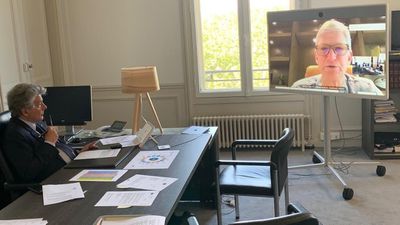Following a conference call with Apple CEO Tim Cook, EU industry leader Thierry Breton has said in a statement that Apple has a "responsibility" to make sure that contact tracing apps work on its iPhones, reports Reuters.
It is "the responsibility of companies such as Apple to do their utmost to develop suitable technical solutions to make the national apps work. Coordination with EU member states' health authorities is paramount," Breton said in a statement.
The two did not talk about any specific case, an EU official said.
The comments follow a spat between Apple and the French government, which has demanded that the company change the privacy settings of its iPhones to make them work with France's planned contact tracing app.
iOS prevents apps like the one France is working on from using Bluetooth in the background if the data collected is going to be moved off of the device, which is a rule designed to protect user privacy. With this limitation, a contact tracing app is only able to access Bluetooth when an iPhone is unlocked and the app is open.
France is aiming to launch a contact tracing app by May 11, but it has complained that Apple's restriction is standing in the way. However, Apple is developing its own Bluetooth-based smartphone tracking solution to allow governments and health agencies to reduce the spread of the coronavirus while also protecting user privacy.
iGeneration reports that Cook gave Breton a release date for its contact tracing API during their call. In a press conference following the talks, Breton revealed that Cook told him the first version of the API will be available on April 28.
Apple's original statement about the API on April 10 said it would be released in May, and would enable interoperability between Android and iOS devices using apps from public health authorities.
In the coming months, Google and Apple will work to enable a broader Bluetooth-based contact tracing platform by building this functionality into their underlying platforms. Apple says that this solution is more robust than an API and will allow more individuals to participate, if they choose to opt in, and it will enable interaction with a broader ecosystem of apps and government health authorities.










 ('https://www.macrumors.com/2020/04/23/apple-contact-tracing-api-release-april-28/')
('https://www.macrumors.com/2020/04/23/apple-contact-tracing-api-release-april-28/')












